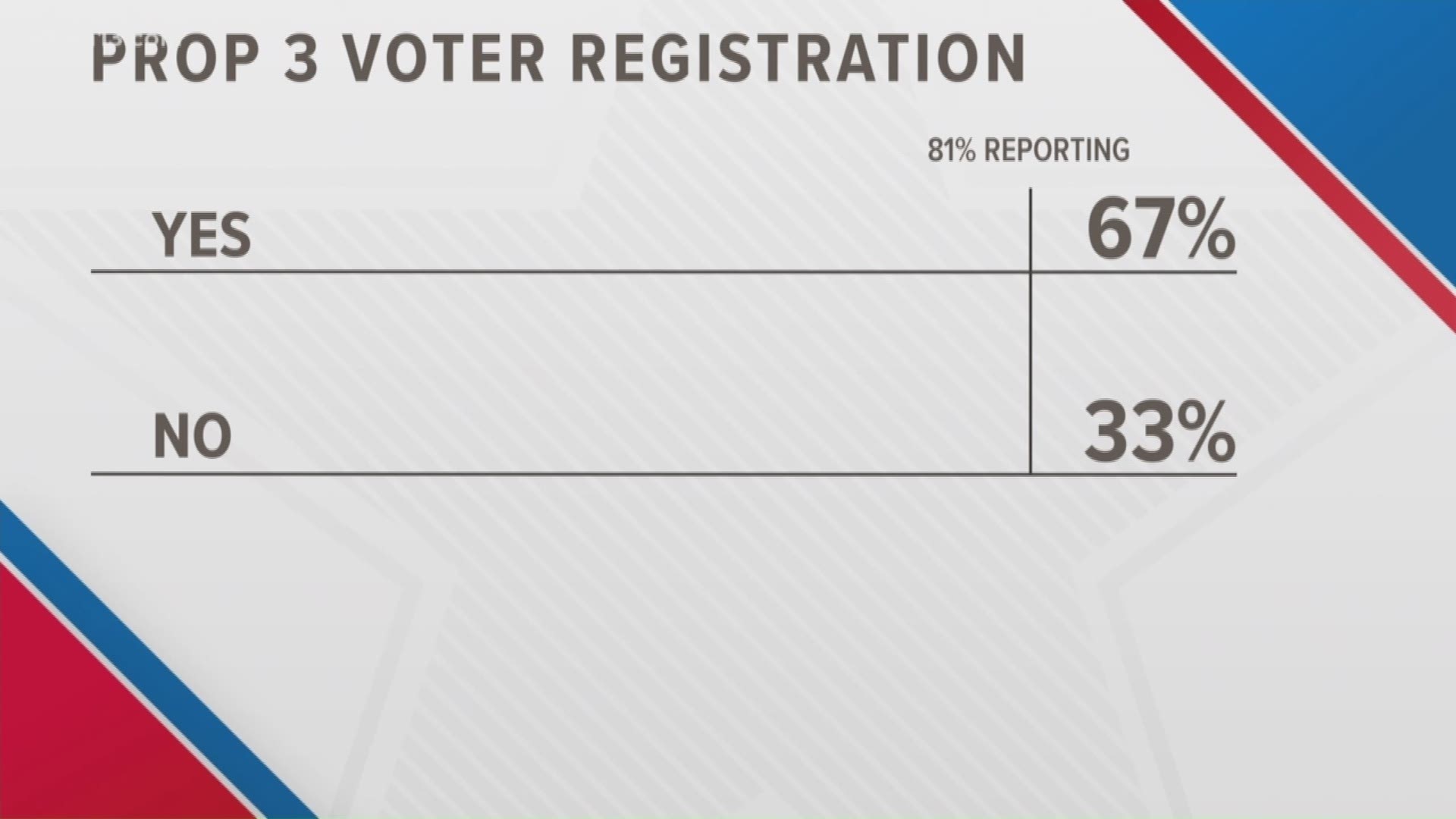A proposal to bring same-day voter registration, no-reason absentee voting and more sweeping changes to Michigan's election law had a commanding lead Tuesday night .
The Promote the Vote question — Proposal 3 on the ballot — brings Michigan in line with at least 17 other states when it comes to same-day voter registration. They include Idaho, Colorado and Wisconsin.
The proposal was largely funded by American Civil Liberties Union (ACLU) Michigan and endorsed by many officials and organizations across the state, including Detroit Mayor Mike Duggan, the League of Women Voters and the Detroit Regional Chamber of Commerce.
Supporters of the proposal say it will prevent fraud through a mandatory auditing process and also make it easier for working parents and other voters with time constraints,to vote.
Critics have argued that the proposition may increase voter fraud, though opposition has been small.
Here's what the proposal does:
- Protects the right to vote a secret ballot
- Ensures military service members and overseas voters can obtain ballots
- Provides Michigan residents with the option to vote straight party
- Automatically registers citizens to vote at the Secretary of State’s Office unless the citizen declines
- Allows a citizen to register to vote anytime with proof of residency
- Provides all registered voters access to an absentee ballot for any reason
- Ensures the accuracy and integrity of elections by auditing election results
Fred Woodhams, a spokesperson for outgoing Secretary of State Ruth Johnson, previously told the Free Press while she has no official stance on the proposal, she "has concerns about the same-day registration portion of the proposal."
"Clerks would not have sufficient time to mail out a non-forwardable mailing to confirm a voter’s address as they do now," Woodhams said in an email. "A person would be able to sign the affidavit to register to vote without showing identification and present a single proof of residency. The lack of identity confirmation could open the door to registration fraud that would be difficult to detect on Election Day."
In July, a coalition of supporters submitted more than 430,000 signatures to the state, exceeding the required 315,654 signatures from across all 83 counties to get the proposal on the ballot. ACLU officials said changing and strengthening Michigan's voting laws has been an ongoing effort that finally gained momentum a few years ago.
Many states already allow voters to register up to and on Election Day at the polls, as long as they have a photo ID and some form of proof of residency. Idaho's law went into effect in 1994.
And at least 37 other states and Washington, D.C., allow voters to obtain absentee ballots with no given reason. But Michigan currently requires a voter under 60 to choose from at least six reasons as to why they need to vote absentee.
Proposal 3 gives voters the ability to register to vote by mail on or before the 15th day before an election. It also allows voters to register with proof of residency up to and on Election Day. It would also restore straight-ticket voting.
The Republican-led Legislature voted to end Michigan's 127-year practice of straight party-ticket voting in 2015 and in early September, the U.S. Supreme Court declined to intervene in the dispute over whether to revive it.
But Proposal 3 would bring it back, giving voters the ability to just check one box on a ballot to cast a vote for one party, across all positions.
A number of states have moved to ban straight-ticket voting in recent years. But some have continued to allow it, including Alabama, Pennsylvania, Oklahoma, Utah, South Carolina and Kentucky, according to the National Conference of State Legislatures.
Meanwhile, Indiana allows the practice for elections excluding at-large races, while Texas will discontinue straight-ticket voting starting in 2020.
Advocates of straight party ticket voting, including the nonprofit and nonpartisan organization Engage Michigan, have argued that the removal can lead to longer lines at the polls and increased confusion among voters.
The organization was among many, including the ACLU of Michigan and the NAACP, that signed a joint letter sent to Johnson earlier this month demanding she release a plan to educate voters around the elimination of straight-party voting in Michigan.
Kat Stafford is the Detroit government watchdog reporter for the Free Press, covering city issues and the community. Contact Kat Stafford: kstafford@freepress.com or 313-223-4759.
►Make it easy to keep up to date with more stories like this. Download the 13 ON YOUR SIDE app now.
Have a news tip? Email news@wzzm13.com, visit our Facebook page or Twitter.

